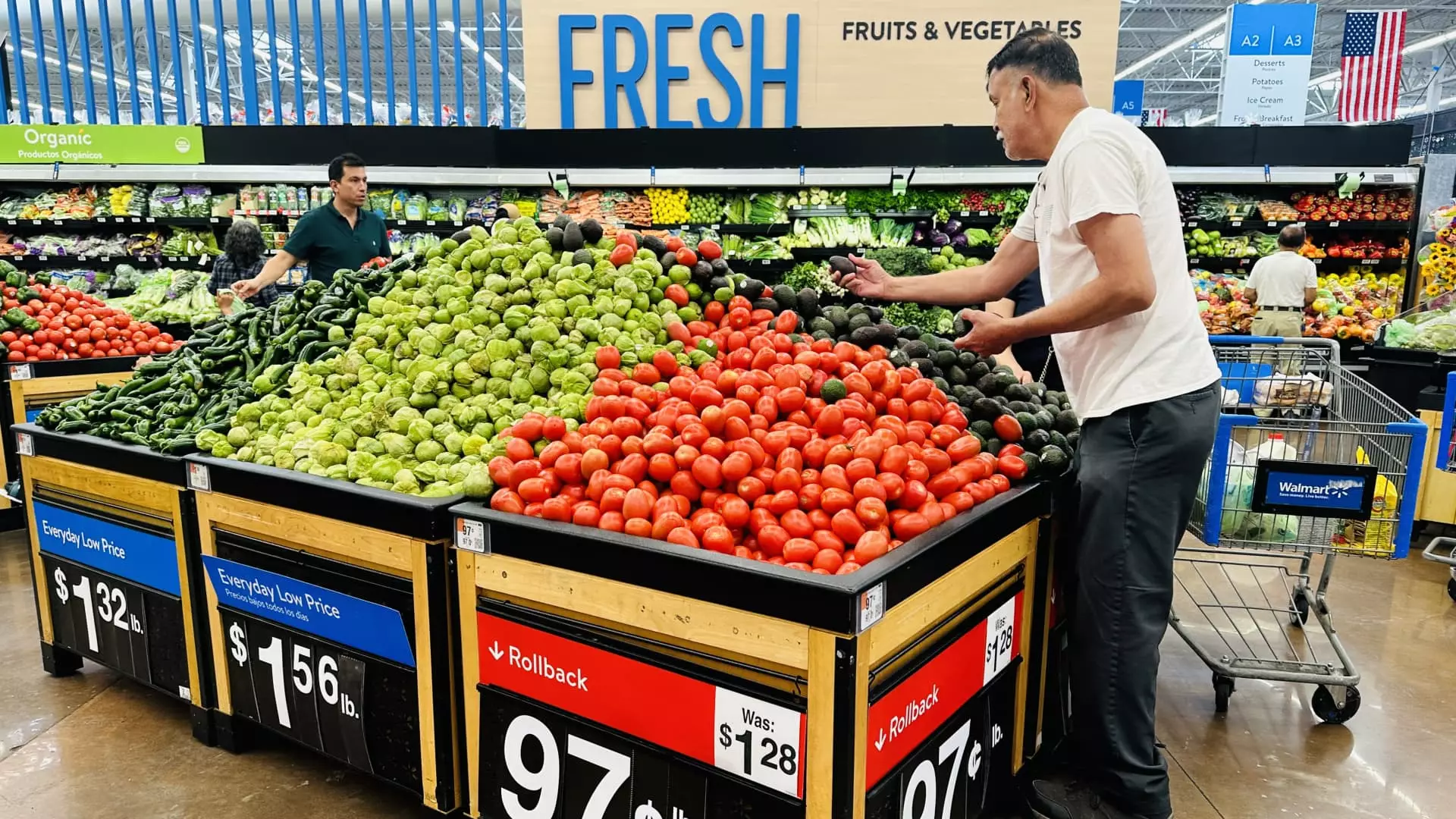In an era marked by escalating living costs and uncertain economic outlooks, a striking 50% of Americans have turned to “Buy Now, Pay Later” (BNPL) services for their shopping needs, especially for essentials like groceries. This shift brings into sharp focus the alarming reality of how consumers are navigating financial challenges. The statistics reveal not just an increasing dependence on these financial tools, but also the underlying struggle that many face in affording basic necessities.
Recent data from Lending Tree suggests that the appeal of BNPL services lies in their perceived convenience—allowing consumers to break payments into smaller, more manageable pieces without accruing interest. However, the numbers tell a deeper story about financial desperation. With 25% of BNPL users relying on these loans for groceries, up from just 14% in previous years, it raises a significant concern about the long-term implications of such financial practices in a country that celebrates its commitment to individual responsibility and sound financial management.
The Dark Side of BNPL Loans: Late Payments and Overextension
While BNPL options may seem like a lifeline for those struggling with rising inflation and stagnant wages, the reality is far less rosy. According to the survey, 41% of participants have reported making late payments on their BNPL loans in the past year. This number represents a marked increase from the previous year and suggests that more consumers are falling behind on their financial obligations. The convenience of these loans can easily morph into a double-edged sword; the momentary relief of affordability can lead to an overwhelming burden of debt and late fees.
Lending Tree’s chief consumer finance analyst, Matt Schulz, rightly warns of the precarious balancing act that consumers perform when using BNPL services. The ease with which one can accumulate multiple BNPL loans—60% of users admit to holding various loans simultaneously—creates a potentially dangerous cycle of debt. Even the most well-intentioned shoppers can find themselves ensnared in a web of financial havoc, struggling to navigate their way through numerous installments and due dates.
Social Implications: A Culture of Debt
As we scan the societal landscape, it becomes increasingly apparent that a troubling culture of debt is emerging among American consumers. The revelation that a staggering 60% of general admission attendees at Coachella utilized BNPL loans to finance their concert tickets only amplifies the concern about consumer habits in today’s economy. When financing entertainment becomes routine, one must question the sustainability of such behaviors in an environment already strained by high interest rates and persistent inflation.
DoorDash’s recent announcement of accepting BNPL for food delivery raises additional alarms, as it humorously points to a scenario in which even our food choices are subject to financing. One can only wonder how we arrived at a point where fast food requires installment payments. This trend speaks volumes about our current economic conditions and the need to reassess how we value essential goods and services.
Short-Term Solutions, Long-Term Consequences
While BNPL appears to offer short-term relief to consumers grappling with their budgets, the longer-term implications may far outweigh the temporary benefits. The encouragement to “extend their budget” may inadvertently cultivate a mindset that prioritizes immediate gratification over long-term financial health. Schulz’s cautious observations suggest an impending downturn, indicating that the current economic environment may only exacerbate these financial struggles.
Moreover, the normalization of dependence on BNPL loans erodes the foundation of sound financial practices. Building wealth and stability involves strategic planning, discipline, and a commitment to avoiding excessive debt. As BNPL becomes ingrained in the fabric of consumer culture, how do we disentangle the allure of immediate satisfaction from the pursuit of financial sustainability?
While the rise in BNPL usage may seem like a feasible solution for many Americans, it is about time we interrogate the broader implications of such a trend. Are we inadvertently creating a cycle of financial dependency that counteracts our capacity for fiscal responsibility? As we grapple with these concerns, it is vital to foster a culture focused on financial literacy, encouraging individuals to understand not just the allure of convenience, but also the potential pitfalls that come with it.

